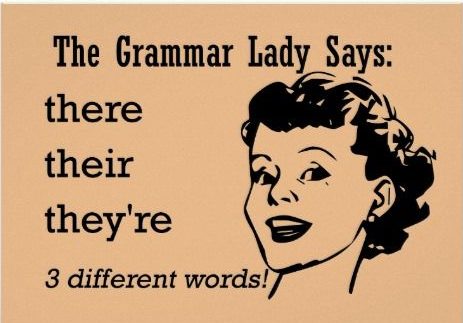there their
There their they’re as a group of words are often top of the list of ‘Commonly Confused Words’ in the English language. This is because these words – there their they’re – are part of common usage in everyday English. So, by the law of averages, this means many opportunities for grammatical errors! For grammar purists, there, their and they’re confusion is one of their ‘pet peeves.’

There, their, they’re – these words have different meanings, and spellings but they sound the same and therefore are called homophones. Native speakers, as well as second language speakers, get these words confused.
Understanding the meaning of a word makes things much clearer, as the meaning points to what the part of speech the word is, and therefore how it should be used in a sentence. So let’s look at the meanings of these three.
There, their, they’re – definitions and differences
There
Adverb or pronoun
It means ‘not here.’
“The ball is not here; it bounced away and it is there.”
There, when followed by is or are mean, ‘in that place.’
“There are some elephants around the corner.”
Their
A possessive adjective.
“I went to see their new baby.”
They’re
They’re is the contraction of the two words: “they are.”
They’re coming to the wedding in June
Which is the correct word usage in the following sentence?
There/their/they’re planning to have there/their/they’re vacation over there/their/they’re.
They’re planning to have their vacation over there.
There, their, they’re, as a group of words figure in most lessons about ‘Commonly Confused Words’ in the English language. Knowing the difference in meaning helps to correct how they are used and spelled in English.



















